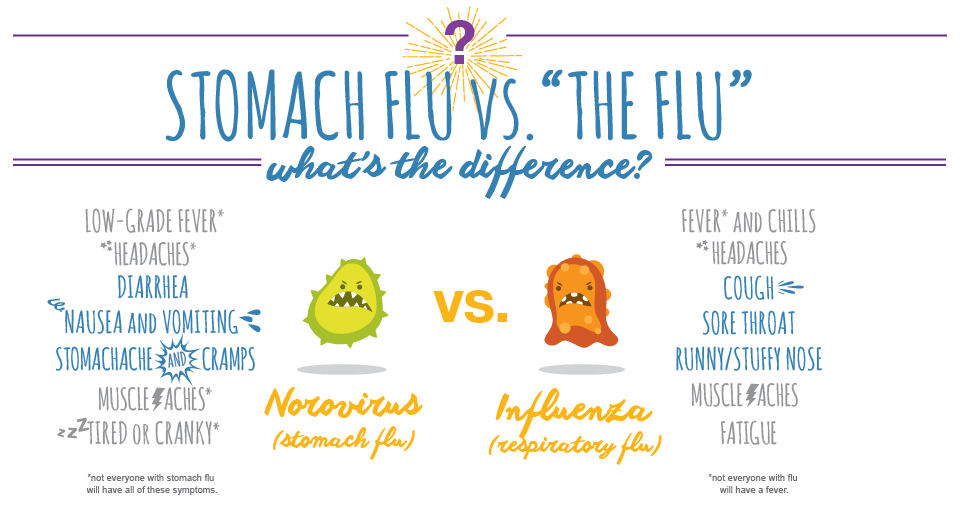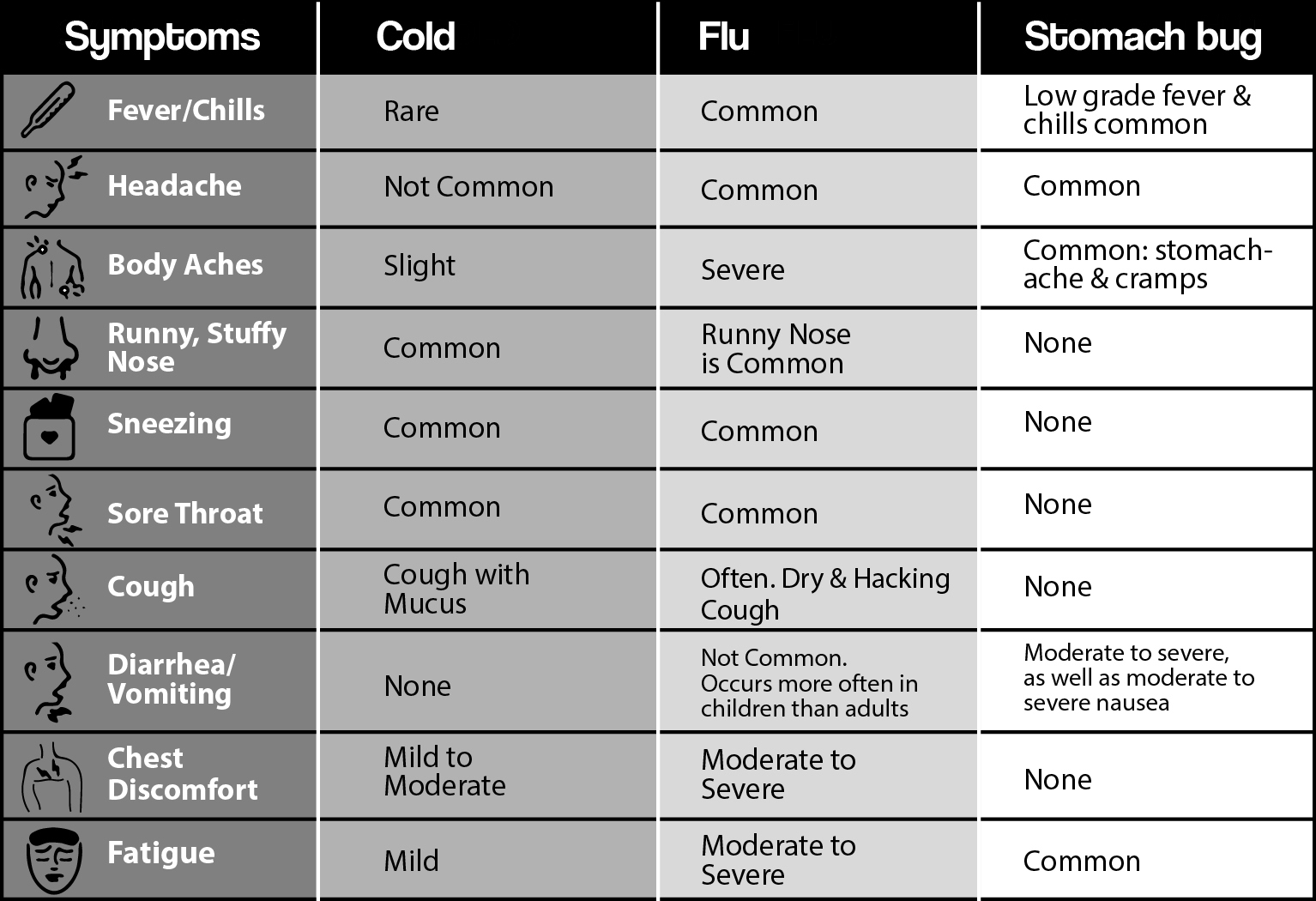A few weeks ago we talked a little about getting sick after having the flu shot. With norovirus circulating in a big way right now I’ve seen an influx of questions across social media from people who got the flu shot this season and are now dealing with bad gastro symptoms. I’m sorry you’re so sick, everyone. What a nightmare! I hope that you’re all on the mend ASAP and have some time to rest and recover.
But let’s be careful when naming our illnesses, because that matters. I know it’s common to call everything the flu, and that might seem harmless. Unfortunately, that’s not the case. The more we call everything the flu and draw a conclusion that we’re sick ‘even after getting the flu shot,’ ‘right after getting the flu shot,’ the more people believe that it’s possible to get sick from the flu shot. And then fewer people get vaccinated, more people get sick, and more people die. So let’s be careful with our language, because what might sound like an innocuous comment could have repercussions that could put someone in serious danger.
So, you’re feeling terrible and you’re wondering: ‘Do I have the flu?’
Are you dealing with nausea, vomiting, and all the abdominal terribleness we’ve grown up calling ‘the stomach flu’? It sounds like you’ve picked up a gastro bug like norovirus. This isn’t the flu, but it is terrible and I hope you’re better soon. Here’s a piece from The Globe and Mail about norovirus.
This next chart – while less adorable and lacking in cartoon viruses – is a great reference for the differences between a cold, the flu, and a gastro illness. Where do your symptoms fall? What sounds more like what you’re feeling?
‘I got my flu shot and my symptoms sound most like the symptoms in the flu list.’
It happens. You can get sick despite having had your flu shot. I can testify to that, after losing Jude. Let’s have a quick recap of how that could happen.
- It’s a different strain. The flu shot only covers either three or four strains, depending on which shot you got.
- You were already exposed before the end of the two weeks it takes to develop immunity from the shot.
- It’s not actually the flu, but another bug that’s floating around. A lot of things can present with flu-like symptoms.
- You failed to develop immunity after your vaccination. No vaccine is perfect and this can happen with any of them, but the consequences can be greater when an illness has a lower vaccination rate – like influenza. The good news – those who get the flu after the shot typically have much milder symptoms and a faster recovery, so even if you still get it, you’re going to get better faster, and you’ll be better off than if you’d skipped the shot.
The flu shot will not protect you against every seasonal illness. It gives your body added protection against the strains they expect to be most dominant, and that’s huge. Those strains have the potential to kill thousands of people every year (~3500 Canadians and ~36,000 Americans each flu season). Taking every measure available to you to protect yourself and those around you is part of being a responsible member of your community, and you might save someone’s life. More flu prevention in my community last year could have prevented the flu from ever reaching Jude, and he would still be alive.
We’ve said this a thousand times and we can’t state it enough: it is 100% impossible to get the flu from the flu shot. It can’t happen. The virus contained in the vaccination is dead, and you can’t get the flu from the flu shot anymore than you can be bitten by a dead dog. It’s impossible. You can experience symptoms from the shot as your immune system recognizes the virus and teaches itself to fight it. This is your immune system working, learning to protect you in case you come in contact with the live virus – in an elevator, in line at the store, sharing a phone at work, talking to a sick friend. The flu is incredibly contagious and can pass up to six feet away, and the flu shot prepares your body for that.
So, you’re sick and feeling terrible, and whichever thing it is that’s attacking your body, you need time to recover. These steps are included in our flu facts section, but they’re useful regardless of what you’re fighting.
- stay home to avoid spreading it to others in the community
- get plenty of rest to allow your body to recover
- drink plenty of fluids
- avoid caffeine (it’s dehydrating)
- treat pain and fevers with relievers such as acetaminophen or ibuprofen – do not give acetylsalicylic acid (Aspirin) to anyone under 18
- treat muscle pain with hot baths and heating pads
- gargle with salt water or use lozenges for sore throat
- try saline spray for nasal congestion
- avoid alcohol and tobacco
See a doctor if your symptoms get worse, or if you’re in a higher risk group.
Get well, everyone. Take steps to recover and to prevent spreading illness to those around you. There are a lot of things going around this time of year, and we can all do more to protect ourselves and our communities. Let’s keep ourselves healthy and protect those around us who are more vulnerable.

